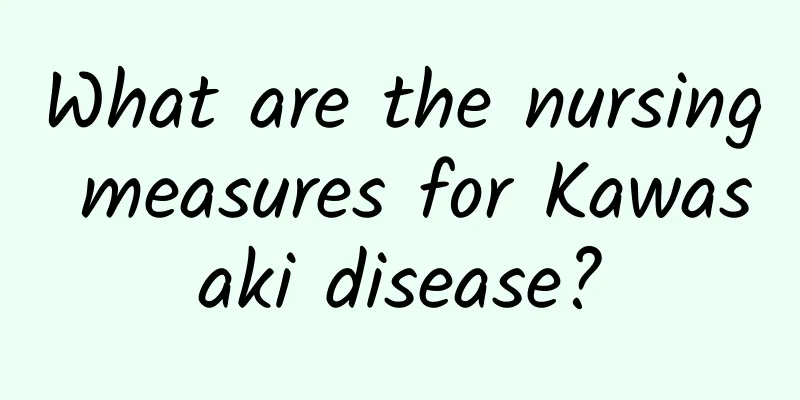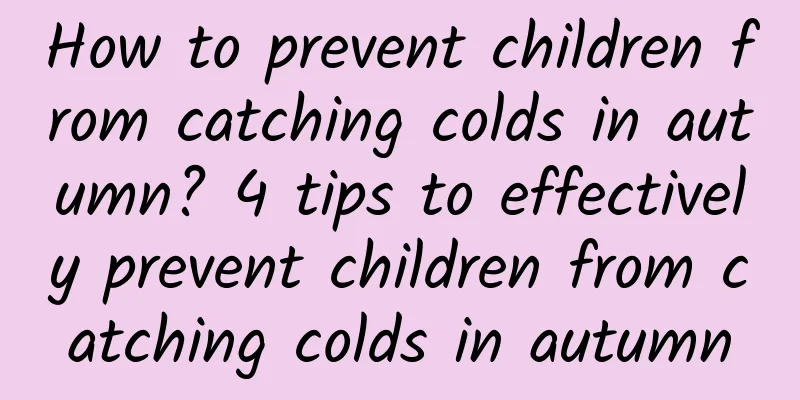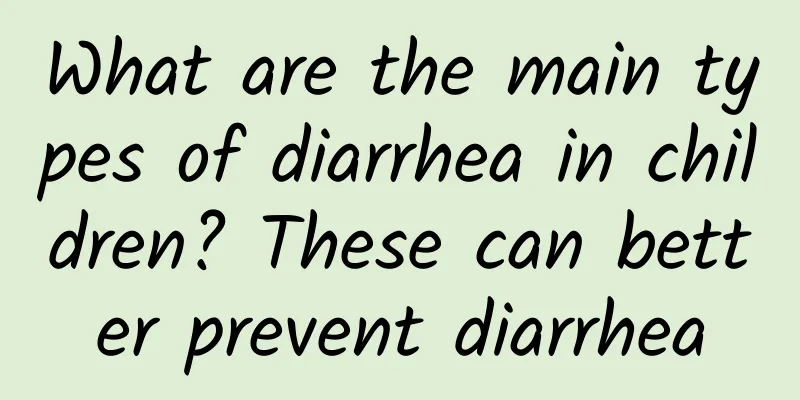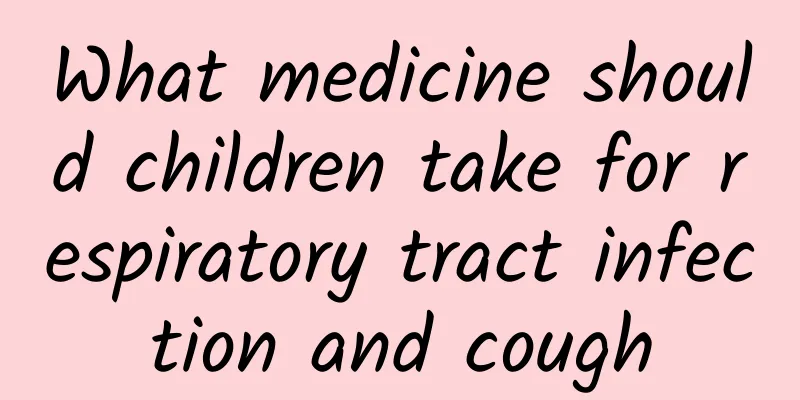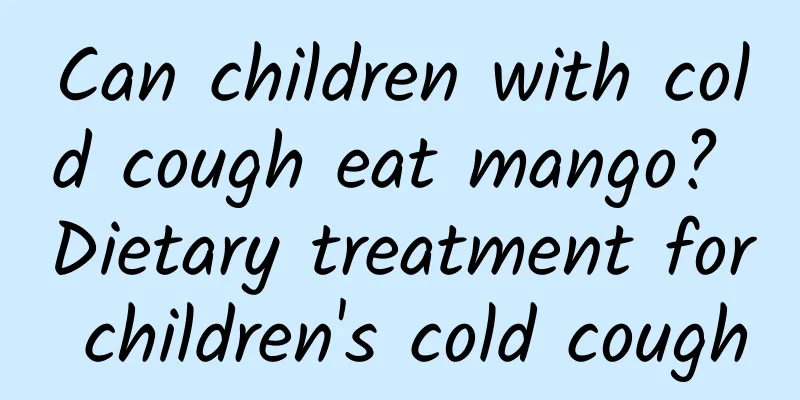How to treat diarrhea in children? What medicine should be taken for diarrhea in children?
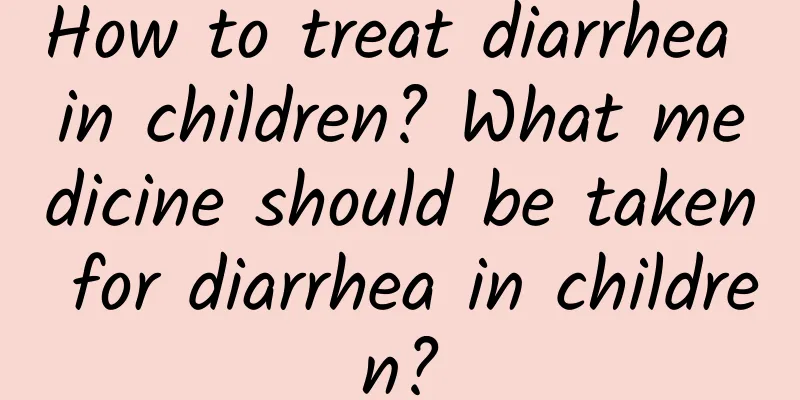
|
Diarrhea is a difficulty that almost all babies will experience. When your baby has diarrhea problems, it is very uncomfortable for parents. Seeing your baby so uncomfortable must make parents want their baby's diarrhea problem to be solved as soon as possible, so you must treat your baby's diarrhea disease well. When your baby has diarrhea, you must pay attention to the treatment. 1. How to treat diarrhea in children Diarrhea is something that almost every baby has to go through. Seeing the baby's face turn pale due to diarrhea, parents' hearts are broken. According to research by the World Health Organization, in addition to bacterial infection, milk protein allergy and lactose intolerance are important causes of diarrhea in children, which can cause malnutrition and even slow development in severe cases. Many parents often confuse milk protein allergy with lactose intolerance, delaying the best time to cure their baby's diarrhea. In fact, there is a big difference between the two. The former originates from the immune system, which regards the large protein molecules in milk as invaders and produces a rejection reaction; the latter originates from the digestive system, which is the inability of the small intestine to secrete normal levels of lactase, so that the lactose in milk cannot be broken down, increasing the burden on the intestine. The two situations of diarrhea have completely different coping methods, and must be scientifically selected under the guidance of a doctor. Parents should choose the right special formula powder for different causes. Let's talk about milk protein allergy first. Every 100ml of milk contains about 3g of protein. The incidence of milk protein allergy in infants under 1 year old is 2-3%. Common allergic reactions include diarrhea, eczema, vomiting and asthma. If not prevented and treated in time, as the baby grows older, the various systems of the body will have different allergic symptoms, causing other allergic diseases such as asthma, allergic rhinitis, etc. The Immunology Group of the Pediatric Branch of the Chinese Medical Association recommends that for mixed-feeding or bottle-fed infants and young children with a family history of allergies, partially hydrolyzed protein formula milk should be used as early as possible and continued throughout infancy to reduce the risk of allergies. The protein contained in this milk powder is 100% hydrolyzed whey protein. Through special enzymatic hydrolysis technology, the complete protein is cut into smaller peptides, thereby reducing the allergenicity of milk protein. When babies are lactose intolerant or have diarrhea, the intestinal mucosa is damaged, resulting in a decrease in the secretion of lactase, which reduces or even loses the ability to digest lactose. At this time, if a large amount of lactose-containing food is consumed, the undigested lactose will increase the intestinal burden and aggravate the diarrhea. Common symptoms include diarrhea, abdominal distension, and smelly farts. When babies have diarrhea, parents should first prevent dehydration. They can give oral saline solution and intravenous infusion when necessary. Under the guidance of a doctor, adjust the diet, supplement nutrition, and choose lactose-free formula powder. Some parents may ask, as a product used by babies during diarrhea, is there any difference in nutrition from ordinary formula milk powder? The main difference between lactose-free infant formula and ordinary formula milk powder is the difference in sugars. The sugars (carbohydrates) in ordinary formulas are mainly lactose; lactose-free formulas use maltodextrin and glucose, which quickly provides energy, as the main source of sugars. At the same time, pre-gelatinized starch with water retention is added, as well as apple powder and banana powder that are beneficial to improving diarrhea. The fat, protein, vitamins, minerals and other nutrients contained in ordinary infant formula milk powder are also contained in lactose-free formulas, and there is not much difference in nutrition. Start eating during the diarrhea period, and continue to use it for at least 2 weeks after the diarrhea symptoms are relieved, so that the intestinal mucosa can be repaired and the lactase activity can be restored. A large number of clinical trials targeting children under one year old with acute diarrhea have shown that lactose-free infant formula can significantly shorten the course of acute diarrhea in infants and improve the treatment effect. I believe everyone has learned the difference between milk protein allergy and lactose intolerance and the coping measures. If the baby has diarrhea, parents should seek medical attention in time, prescribe the right medicine according to the doctor's diagnosis, and choose the right special formula powder to avoid prolonged diarrhea, resulting in insufficient nutrition intake and affecting physical development. 2. What medicine should be taken for children with diarrhea? 1. Oral rehydration salts: Many parents ask for injections when their children have diarrhea. In fact, the most feared thing about diarrhea is dehydration. As long as the water lost in the child's body can be replenished in time, many children do not need infusion. You can buy oral rehydration salts and prepare them according to the instructions. If the child is under two years old, it needs to be diluted before feeding. 2. Microecological preparations: When children under three years old have diarrhea, they can be supplemented with beneficial bacteria to inhibit the excessive growth of harmful bacteria and adjust the imbalance of microecology in the body. For example, Babyle probiotics can make the gastrointestinal tract produce a variety of organic acids and digestive enzymes to help babies absorb food and increase appetite. The lactose and acetic acid produced can enhance the baby's intestinal peristalsis and promote digestion. 3. Prokinetic drugs: When children are severely vomiting and cannot eat, this drug can be used for a short period of time to help them resume eating. The drug must be taken 15 minutes before meals. Because this type of drug may cause side effects on the nervous system of infants, babies under 1 year old should use it under the supervision of a doctor. This drug is prohibited for older children with gastrointestinal bleeding, intestinal obstruction or perforation. It needs to be used under the guidance of a doctor. 4. Try not to use antidiarrhea drugs: This type of drug increases intestinal tension, inhibits intestinal peristalsis, and delays intestinal contents. Doctors use it for severe and difficult-to-control diarrhea, such as diphenoxylate (phenethylpiperidone). However, this type of drug has many side effects and is prohibited for children under 2 years old according to the pharmacopoeia. Doctors will use it in the short term according to the situation, and parents should not use it privately. 5. Antibiotic selection: For clear bacterial infections, antibiotics must be used, but for children, especially young children, these drugs are basically not used because of the relatively many side effects. |
<<: What to do if your one-year-old baby has a respiratory infection and coughs
>>: What to do if your child has an upper respiratory tract infection and a severe cough
Recommend
Radical treatment of late-stage kidney disease in children
Nowadays, more and more people suffer from nephro...
What are the methods for checking eczema in children?
In summer, babies will have varying degrees of ec...
What are the symptoms of neonatal jaundice?
Symptoms of neonatal jaundice include yellowing o...
What to do if your baby coughs
The organs of a one-month-old baby are not fully ...
Is polio hereditary?
Polio is not directly inherited, but genetic fact...
Will acute laryngitis in children affect their speech?
Will acute laryngitis in children affect their sp...
How long does it take for newborn jaundice to subside?
Neonatal jaundice can be divided into physiologic...
What fruits should I eat for Kawasaki disease?
What fruits should be eaten for Kawasaki disease?...
How to care for a one-year-old baby with a cold, cough and phlegm
Colds are mostly caused by inflammatory stimulati...
What are the treatments for pediatric eczema? Is cold compress effective in treating pediatric eczema?
The occurrence of eczema is relatively common, an...
Why is eczema difficult to treat in children?
Many babies suffer from eczema soon after they ar...
Will the baby's indigestion have a bad-smelling stool? What are the treatment methods for baby's indigestion?
Baby indigestion is the most common digestive tra...
How to treat a child with a severe cough How to treat a child with a severe cough
If you find that your baby has a severe cough, yo...
Adverse effects of pneumonia in children
Nowadays, most young men and women lack experienc...
What are the precautions for children with kidney disease?
What are the precautions for children with kidney...
